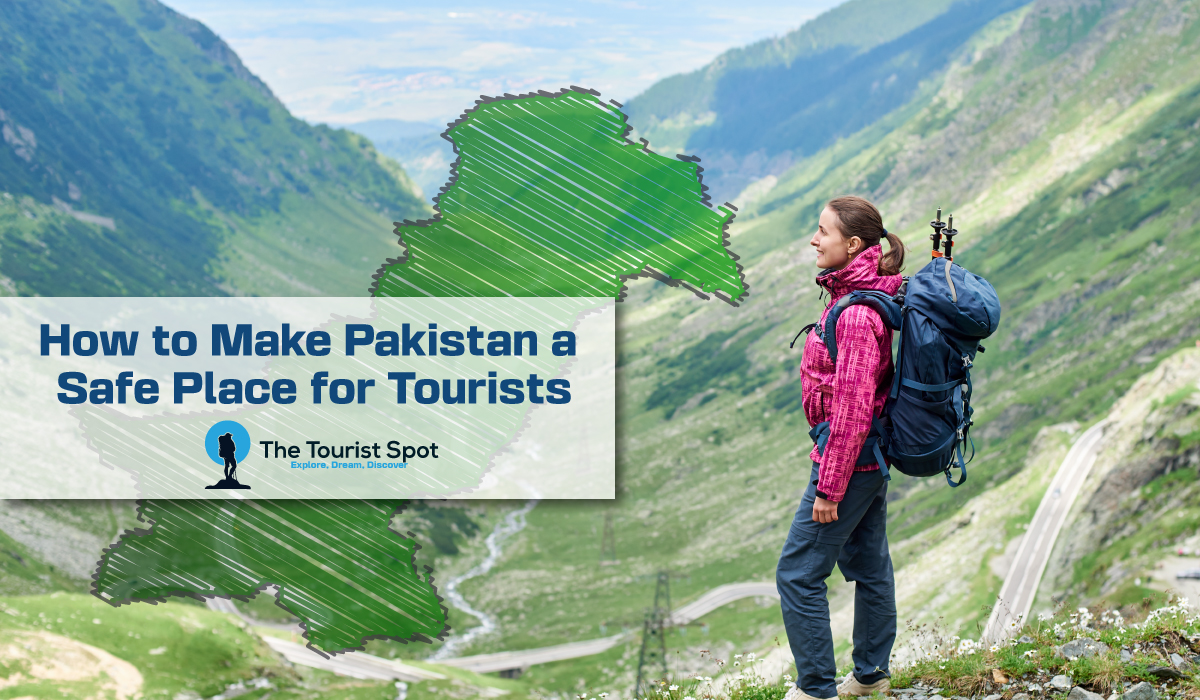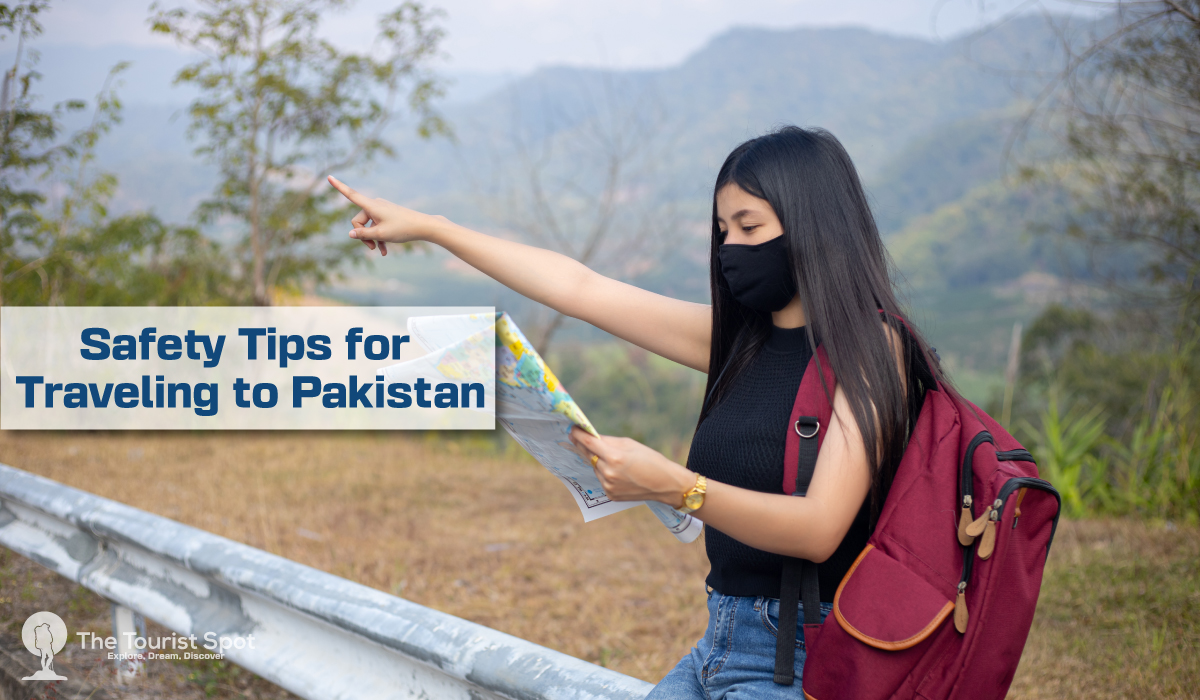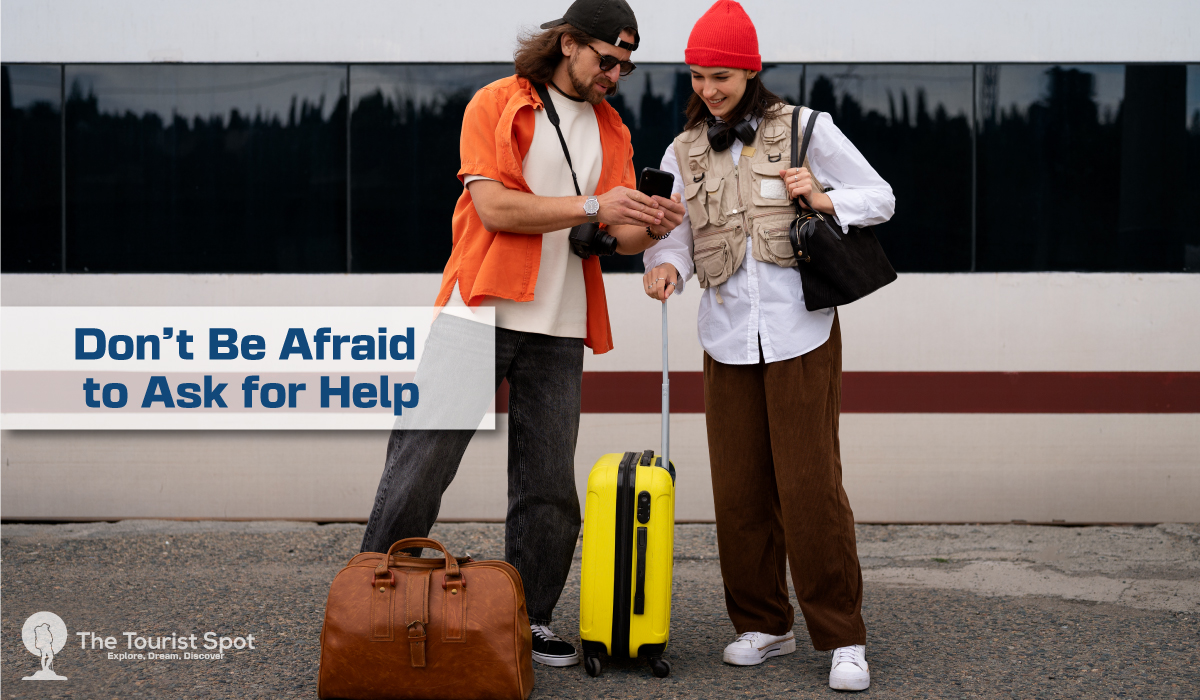How to Make Pakistan a Safe Place for Tourists
by tourist

Despite terrorist attacks (which do happen), Pakistan is a safe place for tourists *if you follow rules and boundaries during your trip.*
Street harassment is a problem for some travelers, particularly women. Dressing modestly and avoiding attention will help to reduce this issue.
But these unfortunate incidents are rare and mostly happen in areas that you wouldn’t be traveling to as a tourist.
Table of Contents
ToggleSafety Tips for Traveling to Pakistan
Pakistan is a vastly misunderstood country. While it does have some security issues, these are only in specific areas and do not impact the majority of the country’s tourism areas. Granted, from 2007 – 2012 (a decade ago) Pakistan was at the peak of Taliban activity and terrorist attacks were commonplace but since then the country has done a complete 180 and is once again one of the safest places in the world to visit.
Of course, like all travel destinations, there are still natural hazards to consider. Pakistan is in a high-risk earthquake zone and monsoon season can lead to flooding, landslides and disruption of essential services. Insect-borne diseases are also prevalent so be sure to take precautions and a malaria vaccination is recommended.
It’s a good idea to stay up-to-date on local news and events as this will give you a better sense of the risks and what you should avoid. Keep an eye on LOCAL media such as Dawn, Pamir Times or Express Tribune and check in with Facebook groups like Backpacking Pakistan or The Karakoram Club. You can also ask the locals, they’re often a wealth of information and are happy to help!
When it comes to safety, it is always a good idea to travel in a group. This is especially true for women travellers as gang rapes and sexual harassment against 2SLGBTQI+ people are common. If possible, try to find a local partner or join a female-only group to travel together and share experiences. This will make you less of a target and can even be safer.

1. Stay Off the Streets
While most of Pakistan is safe to visit, there are a few riskier areas to avoid. For instance, the southwestern province of Balochistan is dangerous because it harbors separatists that want to form their own state. The area is also a hotbed for kidnappings and terrorist attacks, especially in the capital city of Quetta.
The rest of Pakistan is much safer to travel in, especially the parts that draw in foreign tourists. But it is important to be mindful of the local cultural norms. For example, public displays of affection between men and women are frowned upon. The country is a Muslim one, and it is important to respect religious sensibilities as you explore it.
It’s a good idea to stay off the streets during political protests, which are common in major cities and can turn violent. The same goes for large crowds, which can easily erupt into violence or stampede. This is a concern in Pakistan because the people are often very hotheaded and get worked up easily.
If you’re going to be out and about, try to stick with the main streets and stay away from crowded markets or places where there are high numbers of people. Also, be careful with food and drink as some of the street vendors might have low hygiene standards.
As a general rule, avoid alcohol and pork products. It’s also best to eat at restaurants that are popular with locals for two reasons. They’ll have better hygiene levels and the food will probably be tastier too! In addition, try to stay in hotels with secure windows and doors. This is an extra precaution to take, particularly if you’re traveling solo.
2. Be Prepared for Security Checks
With massive mountain ranges, hospitality that is the stuff of dreams, and more historical sites than you can count, Pakistan is every adventure traveler’s wet dream. The country does have its concerns though. Terrorism has taken a toll, but the country is much safer than people tend to think. While unfortunate terrorist attacks do happen, they’re mostly in regions that most tourists wouldn’t visit and are sporadic. In fact, Pakistan is one of the safest countries in the world according to the Global Peace Index!
The country’s military and ISI are extremely active behind the scenes to ensure any potential threats are dealt with quickly. That being said, it’s still a good idea to be extra vigilant in public places and carry a small amount of cash with you at all times. Also, don’t wear expensive jewelry or other shiny objects – you’ll stand out as a foreigner and will attract unwanted attention.
Harassment is also a common concern for women travelers in Pakistan. The groping and stalking that can sometimes occur in crowds is not uncommon, and special rules for women may apply at some religious sites.
Food poisoning and parasitic infections are also a risk for travelers. Be sure to drink only bottled water that is labeled as ‘safe’ and avoid raw foods. Additionally, make sure to have a polio vaccination and any other required vaccines in your arsenal.
Pakistan is a wonderful country to explore and, despite the negative connotations, it’s not nearly as dangerous as the Western media makes it out to be. However, it’s important to be a cautious traveler and take precautions, as is the case with any country you choose to visit!
3. Have a Back-Up Plan
Although Pakistan isn’t exactly the most dangerous country in the world, there are still places where crime and terrorism can occur. Areas to avoid include parts of rural Sindh, some neighborhoods in Karachi, the area around Abbottabad where Osama Bin Laden lived, and all areas bordering Afghanistan and Indian-Occupied Kashmir.
Even in these areas, normal tourists are unlikely to come into harm, as the police will usually provide an armed guard for foreign travellers. However, if you are in these areas for an extended period of time, it is recommended that you take precautions and always have a back-up plan.
This might mean a friend with whom to travel, or it might mean signing up for a security group for travelers in the region. It might also mean bringing an emergency medical kit and making sure your vaccinations are up to date (especially a polio vaccine if you’re traveling in rural areas).
Medical facilities in Pakistan are limited, especially in rural and remote regions. You may require medical evacuation if you get seriously ill or injured, so make sure your travel insurance covers this. It’s also worth considering a membership with a travel insurance company that offers month-to-month payments and no lock-in contracts, such as Safety Wing.
4. Don’t Be Afraid to Ask for Help
There are a lot of pros to solo travel (getting out of your comfort zone, gaining confidence, learning a language), but it can also be challenging in some places. Pakistan is a very male-dominated society and women often face harassment while traveling alone. Gender-based violence including honour killings and forced marriages are common in the country, too. It’s also very hot in Pakistan and dehydration can be a serious problem. It’s good to have a plan for how you will stay hydrated while travelling, especially at high altitudes.
Another thing to note is that it’s common for foreign tourists to suffer from food poisoning in Pakistan due to poor hygiene standards and the heavy use of spices and cooking oil in the cuisine. You’ll want to make sure you’re drinking enough water and eating plenty of fruits and vegetables while travelling in the country.
While Pakistan is a relatively safe place for travellers, it’s still an undeveloped country and it does have its challenges. If you’re considering a trip to the country, take some time to research the area you want to visit and talk to people who have visited recently. It’s also a good idea to get in touch with a local travel agent or hotel and see if they can help you secure an entry visa. You’ll likely need a letter of invitation from a host or a tour company for this, so it’s important to organize this ahead of time. It’s a worthwhile investment for safety and to ensure you have the best possible experience in Pakistan. You won’t regret it. I promise.

Despite terrorist attacks (which do happen), Pakistan is a safe place for tourists *if you follow rules and boundaries during your trip.* Street harassment is a problem for some travelers, particularly women. Dressing modestly and avoiding attention will help to reduce this issue. But these unfortunate incidents are rare and mostly happen in areas that…
